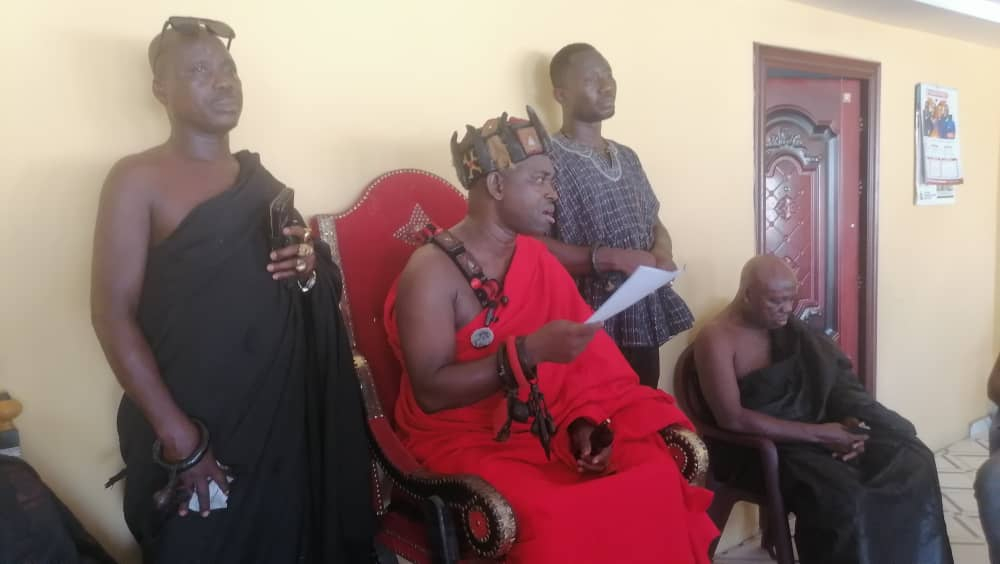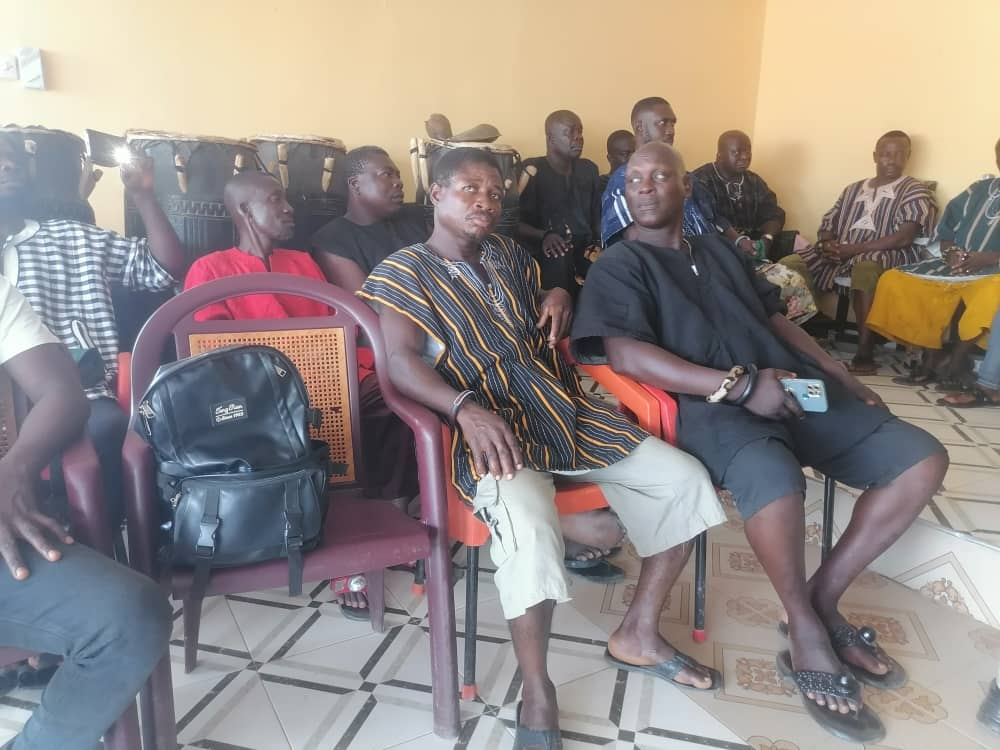This blog is managed by the content creator and not GhanaWeb, its affiliates, or employees. Advertising on this blog requires a minimum of GH₵50 a week. Contact the blog owner with any queries.
The Coaltar Traditional Council has condemned the actions of Kyebi Apapamhene, Okogyeaman Apagya Fori, who claimed to have destooled the Chief of Coaltar, Barima Okekrebesi Asiedu II, through rituals. The council stated emphatically that, in this age, a chief cannot be destooled merely by slaughtering a sheep.
In a statement issued by members of the council, they clarified that Kyebi Apapamhene, Okogyeaman Apagya Fori, is not a kingmaker and, therefore, has no mandate or authority to enstool or destool the Chief of Coaltar.
On January 17, 2025, some media outlets reported that Okogyeaman Apagya Fori had performed traditional rites, including the pouring of libation, slaughtering a ram, and invoking the Oath of the Okyenhene, Osagyefuo Amoatia Ofori Panin, to announce the destoolment of Barima Okekrebesi Asiedu II.
The Coaltar Traditional Council, however, dissociated itself from what it described as “dastardly and illegal conduct” by Okogyeaman Apagya Fori. The statement explained that “in this modern day and age, a chief cannot be destooled by merely slaughtering a sheep, pouring libation, or removing a chief’s sandals—practices that are outmoded and antiquated.”

The council also stated that a chief cannot be destooled through public demonstrations, the beating of gong-gong, the invocation of an oath, or public announcements in the media, as none of these satisfies the legal and customary requirements for destoolment.

They emphasized that the actions of Okogyeaman Apagya Fori contravened Section 40, Subsection (1) of the Chieftaincy Act 2008 (Act 759), which stipulates that “a person is not entitled under this Act to institute proceedings for the deposition of a chief unless that person is entitled to do so under the customs of the area concerned.”
Reaffirming Barima Okekrebesi Asiedu II as the substantive Chief of the Coaltar Traditional Area, the council cited Justice S.A. Brobbey’s book, *The Law of Chieftaincy in Ghana*, which outlines the proper procedure for destoolment. According to Brobbey, destoolment must follow due process, including charges brought against the chief by a majority of the kingmakers, investigations into the charges, adherence to natural justice, and the performance of the actual customary destoolment process.
The council described Okogyeaman Apagya Fori’s actions as uninformed by the legal rules and practices of destoolment and attributed them to either ignorance of the law or a deliberate attempt to mislead the public and cause unnecessary disturbances.
They also clarified that the Chief of Coaltar does not swear allegiance to any chief beyond the boundaries of Coaltar. “We wish to inform the public that Okyeman and Coaltarman are related by ties of consanguinity, and this cordial relationship cannot be broken by anyone, as blood is thicker than water,” the statement added.
Furthermore, the council accused Okogyeaman Apagya Fori of attempting to cause fear and panic within the Coaltar Traditional Area, a criminal offense under Ghana’s Criminal Code. As a result, some chiefs in the area have reported his actions to the police.
The Coaltar Traditional Council called on the Ministry of Chieftaincy Affairs, as well as the Regional and National House of Chiefs, to undertake an extensive national education campaign on the proper processes for enstoolment, enskinment, and destoolment of chiefs in Ghana.


